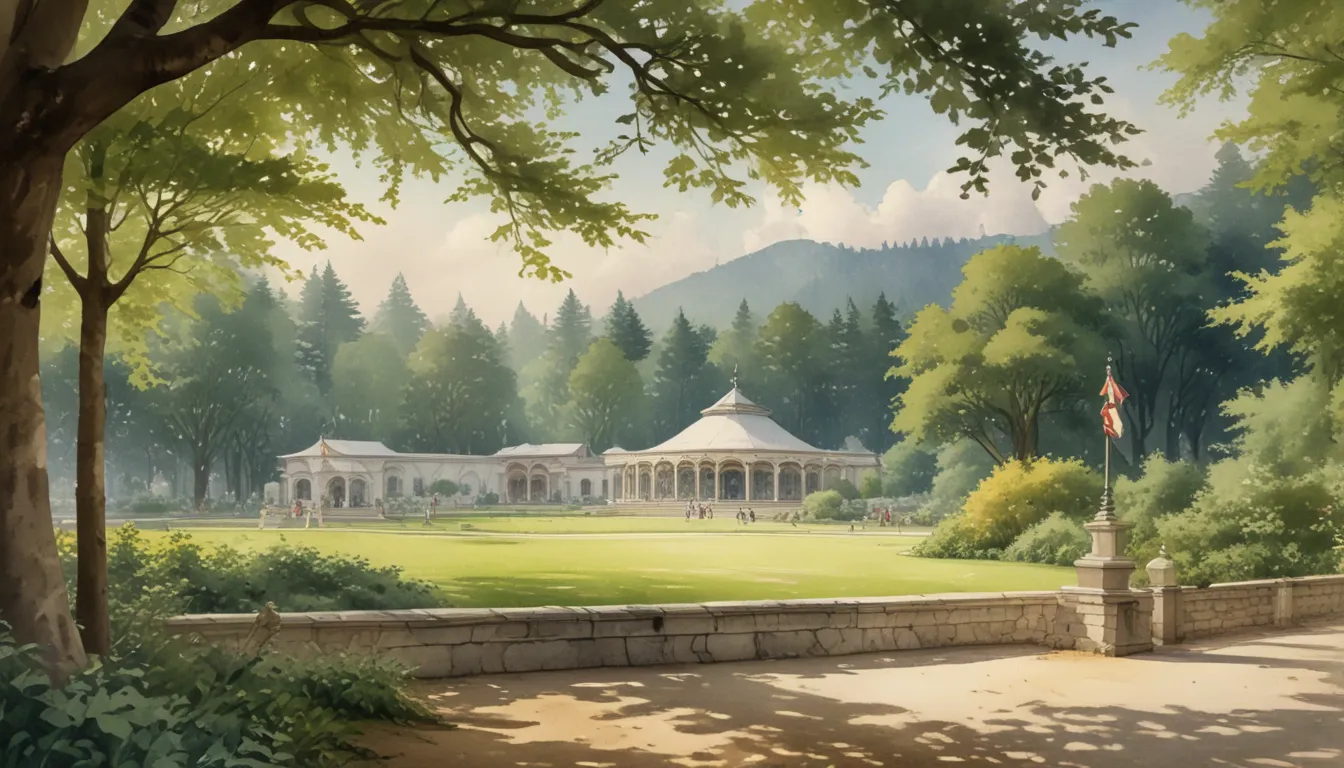The images in our articles are for illustrative purposes only and may not exactly match the content. They are intended to capture your interest and complement the text, not to replace it.
Welcome to the fascinating world of Olympia, the ancient Greek city that gave birth to the legendary Olympic Games. Nestled in the picturesque Peloponnese region, Olympia is a place where myth and history intertwine, creating an aura of mystery and wonder that continues to captivate visitors from around the globe.
In this article, we invite you to dive deep into the enigmatic and lesser-known facts about Olympia, uncovering the hidden stories and secrets that make this ancient sanctuary so captivating. From the sacred temples dedicated to the gods to the awe-inspiring athletic competitions that once graced its grounds, each aspect of Olympia’s rich history promises a journey back in time filled with intrigue and discovery.
So, buckle up and prepare to be transported to the world of ancient Greece as we unveil 15 fascinating facts that will shed light on the wonders of Olympia and its enduring legacy.
Unveiling Olympia’s Mysteries:
-
The Birth of the Olympic Games: The Olympic Games originated in Olympia in 776 BC, dedicated to the mighty god Zeus, marking the beginning of a four-year cycle known as the Olympiad.
-
The Eternal Flame: A symbol of continuity between ancient and modern Olympics, the Olympic flame is ignited at Olympia using a parabolic mirror and then carried to the host city, connecting the past and present in a timeless tradition.
-
The Statue of Zeus: Crafted by the renowned sculptor Phidias, the Statue of Zeus was a colossal masterpiece and one of the Seven Wonders of the Ancient World. Though lost to time, its legacy lives on through replicas and descriptions.
-
The Temple of Hera: Dedicated to the queen of the gods, the Temple of Hera was a prominent structure in Olympia, housing a magnificent statue and serving as a focal point for religious ceremonies during the Olympic Games.
-
The Olympic Truce: A tradition born from the games, the Olympic Truce brought a temporary halt to hostilities among warring states to ensure safe travel for participants and spectators to Olympia, promoting peace and unity.
-
Athletic Spectacles: From foot races to chariot races, the ancient Olympic Games showcased a wide array of competitive events that celebrated physical prowess and skill, open exclusively to free-born male Greeks.
-
The Grand Stadium: With a capacity of up to 45,000 spectators, Olympia’s stadium was the heart of the Olympic Games, where athletes competed in various disciplines amid an atmosphere of excitement and camaraderie.
-
The Wealthy Treasuries: City-states and individuals erected treasuries at Olympia to display their riches and offerings to the gods, serving as both storerooms for valuable gifts and monuments of their contributions.
-
Honoring the Victors: Successful athletes at the Olympic Games were lauded as heroes in ancient Greece, receiving lavish rewards such as olive wreaths, public feasts, and exemptions from taxes and military service.
-
The Palaestra: A training ground for wrestlers and athletes, the Palaestra within Olympia’s walls provided a space for competitors to hone their skills and prepare for their events.
Discovering Olympia’s Legacy:
-
The Archaeological Museum: Situated near the ancient site, the Olympia Archaeological Museum houses a vast collection of artifacts unearthed during excavations, offering visitors a glimpse into the city’s storied past.
-
The Majestic Temple of Zeus: Featuring intricate sculptures and grandeur, the Temple of Zeus was the largest Doric temple in Greece and once housed the awe-inspiring Statue of Zeus, symbolizing the divine connection between the gods and the Olympic Games.
-
The Thrilling Hippodrome: Serving as a venue for chariot races and equestrian events, Olympia’s Hippodrome provided exhilarating spectacles where skilled charioteers vied for victory and glory.
-
Ancient Victors’ Rewards: In lieu of medals, Olympic victors received olive wreaths and esteemed recognition, with the olive tree symbolizing victory and peace in the eyes of the gods.
-
The Decline of Olympia: Following the Roman conquest of Greece, Olympia’s importance waned, leading to the eventual disbandment of the Olympic Games in 393 AD by Emperor Theodosius I, marking the end of an era for the ancient sanctuary.
These 15 captivating facts offer a glimpse into the grandeur and significance of Olympia, a place where history and myth intertwine to create a tapestry of wonder and inspiration. As you explore the remnants of this ancient city, let the echoes of the past transport you to a world where gods and heroes once roamed, leaving a legacy that continues to captivate hearts and minds to this day.
Frequently Asked Questions:
-
When were the first Olympic Games held in Olympia? The first Olympic Games took place in Olympia in 776 BCE.
-
What was the purpose of the ancient Olympic Games? The ancient Olympic Games honored the god Zeus and celebrated athletic prowess.
-
How long did the ancient Olympic Games last? Initially a one-day event, the games expanded over time to five days of competitions and festivities.
-
Why was Olympia considered a sacred site? Olympia held mythological significance, particularly its association with the god Zeus, making it a revered and sacred place.
-
Are the original structures in Olympia still intact? Most of the original structures have been lost to time, with the remaining ruins offering glimpses into the city’s ancient glory.
-
Can visitors partake in sports activities at Olympia? While the modern Olympic Games do not take place in Olympia, visitors can explore the ruins and engage in guided tours of the ancient site.
-
How can one access Olympia? Olympia is accessible by road and rail, with major transportation hubs in Athens and Patras providing links to the ancient sanctuary.
-
Are there museums in Olympia? Yes, the Olympia Archaeological Museum houses a wealth of artifacts from the ancient site, including statues and sculptures.
-
Can Olympia be visited year-round? Yes, Olympia is open to visitors throughout the year, though it’s advisable to check for closures or special events before planning your trip.
-
Are accommodations available near Olympia? Hotels and guesthouses in the vicinity of Olympia cater to visitors seeking to explore the ancient site and its surrounding attractions.
Embark on a journey of discovery and exploration as you uncover the wonders of Olympia, a place where history comes alive and legends unfold before your eyes. Immerse yourself in the legacy of the Olympic Games and let the mystique of this ancient sanctuary inspire and awe you, carrying you back to a time when gods walked among mortals and heroes rose to glory in the hallowed grounds of Olympia.






